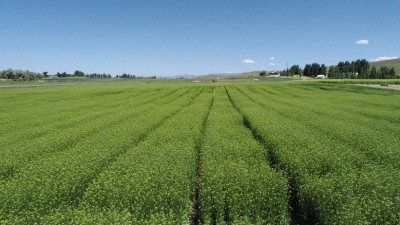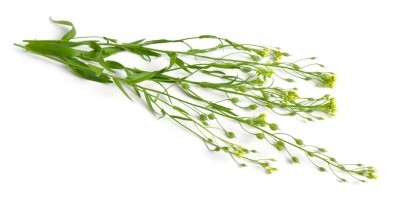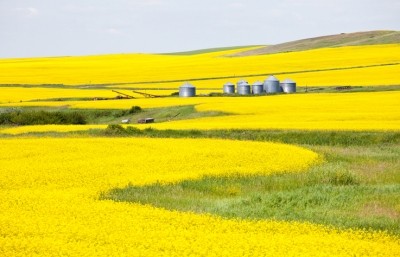Shell and S&W pair up to develop sustainable fuel and feed

The alliance intends to develop Camelina and other oilseed species from which oil and meal can be extracted for future processing into animal feed, biofuels, and other bioproducts.
Longmont, Colorado headquartered, S&W, outlined how it will contribute its expertise in seed research, technology, production, and processing to the JV, including its seed processing and research facilities in Nampa, Idaho.
"We are pleased to be entering this JV with Shell, which leverages our seed and technology capabilities with Camelina and demonstrates how agriculture and energy can work together to lower carbon emissions by producing domestically sourced sustainable biofuel feedstocks," said Mark Wong, CEO of S&W. "Shell shares our vision on the long-term opportunity Camelina provides, including enhancing farmland food production.”
The partners see Camelina as a scalable and commercially viable oilseed with the potential to be a sustainable feedstock source for the energy transition.
Camelina is also recognized as a low greenhouse gas (GHG) cover crop in the US, they said.
Cover crops are planted between main crop growing seasons, with the aim of not influencing the price or availability of crops grown for food and feed. “Using effective controls and management, Camelina has the potential to provide sustainable feedstocks, and create social and environmental co-benefits by diversifying farmers' income streams and reducing soil erosion.”
Biofuels, such as those made from Camelina oil, may be an effective way to help decarbonize customers in hard-to-abate sectors, where energy density in fuels is key, including the aviation, marine, and heavy-duty road transport sectors, said the collaborators.
The JV expects to carry out initial grain production in late 2023.
Cover crops
There is a push on, currently, to support the growth of cover crops in the US, Dr Oliver Peoples, CEO of Yield10 Bioscience told us last year.
“Cover crops are planted in the winter, they help to reduce nutrient pollution of water and soil run-off and Camelina is very well suited to that. So, there are the evident environmental benefits from growing Camelina, but using it as a second crop on soybean and corn acres means you also get a valuable seed that produces oil and protein.”
Yield10 Bioscience, Inc. is a Woburn, Massachusetts based ag bioscience company that is using its differentiated trait gene discovery platform to develop improved Camelina varieties for the production of proprietary seed products, and to discover high value genetic traits for the agriculture and food industries.
Its mission is to develop carbon negative, sustainable products, establishing a high value seed products business based on developing superior varieties of Camelina.
“Camelina is an oilseed that has been grown in Northern Europe for centuries, but it has not really been domesticated for large-scale production in other parts of the world.
"We have been working on this as part of our synthetic biology platform for around 10-12 years. Camelina is like rapeseed or canola, the seed can be processed to produce oil for biofuels or nutrition applications and then there is protein output for use in poultry, pig, and salmon feed. Using both CRISPR and GMO technology, we are looking to improve the productivity and the sustainability of the crop."
Bunge and CCI alliance
To prove Dr Peoples’ point, last year saw Bunge and CoverCress Inc (CCI) announce they were collaborating to bring a new biofuel feedstock and animal feed component to market. CoverCress seed would allow corn and soybean farmers in the Midwest to add a new crop into their rotation on existing land during winter, while offering the ecosystem benefits of a cover crop, including improved soil health and carbon sequestration.
Founded in 2013, CCI is converting the common winter annual, field pennycress, using plant breeding to improve yield and maturity and gene editing tools to improve fiber and oil composition. It is branded as CoverCress.
When CoverCress grain is crushed, the oil produced is an ideal lower carbon intensity feedstock to help meet the growing demand for renewable fuels. The meal that is also produced has a protein and amino acid profile similar to canola, making it an ideal animal feed source, according to the developer.








